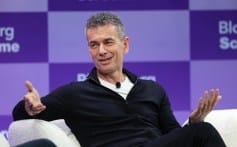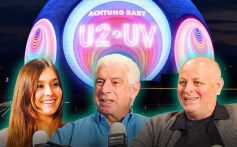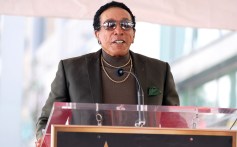Business
Page: 7
Trending on Billboard
An appeal filed by Making the Band contestant Sara Rivers aimed at reviving her $60 million sexual assault lawsuit against Sean “Diddy” Combs has been abruptly dismissed — a move that came after her lawyers failed to file basic court forms.
Rivers sued Combs earlier this year over claims that he harassed and groped her during the filming of the 2000s MTV reality show, but a federal judge ruled this summer that she’d waited far too long to sue. After that ruling, she quickly filed an appeal aimed at overturning it.
Related
But last month, according to court records reviewed by Billboard, the appeals court dismissed Rivers’ case. The reason? Her attorneys failed to meet a required deadline to file basic procedural forms that are filed at the start of any appeal.
That failure means that the earlier ruling dismissing Rivers’ case is now final, and most of her case is now closed. A small element of the case has not yet been fully dismissed, but the majority of her case was dismissed permanently.
Ariel Mitchell, the attorney who represents Rivers and failed to make the required filings, did not immediately return a request for comment on Thursday (Nov. 20). Reps for Combs also did not return a request for comment.
Rivers, who became a member of hip-hop group Da Band, sued Combs in February, claiming he had cornered her in a recording studio and “ran his left hand across her breasts.” She also claimed that he later blackballed her in the music industry in retaliation for rebuffing his advances.
Related
The case was one of dozens of civil lawsuits filed against Combs over the past two years alongside his blockbuster federal criminal case. Following a two-month trial, Combs was acquitted last month on the most serious charges of racketeering (RICO) and sex-trafficking in that case, though he was found guilty on two lesser counts of interstate prostitution. Last month, he was sentenced to four years in prison.
In August, Judge Jed Rakoff ruled that Rivers had filed her case far too late. He said allegations centered in the 2000s were clearly filed years after the statutes of limitations had expired.
“It is important to remember the many positive purposes served by statutes of limitations,” the judge wrote. “They promote justice by preventing surprises through plaintiffs’ revival of claims that have been allowed to slumber until evidence has been lost, memories have faded, and witnesses have disappeared.”
Judge Rakoff said Rivers had invoked a “hodgepodge” of arguments for why the time limits should be lifted in her case, including that she was afraid of retaliation from Combs and his business empire. But the judge said that wasn’t enough.
Related
“While Rivers does allege that she experienced a general fear of retaliation preventing her from speaking out against Combs, general claims of psychological stress cannot give rise to duress tolling,” the judge said, referring to the technical term for such a delay.
Rivers quickly appealed, setting the stage for a lengthy battle before the U.S. Court of Appeals for the Second Circuit. But after making her initial case filings, Mitchell never filed another document in the case — even after being warned to do so.
In early October, the court warned her that failure to submit Form C and Form D (a basic case synopsis and disclosure regarding transcripts, respectively) would result in the case being dismissed in two weeks. Mitchell never filed those forms, and the case was duly dismissed on Oct. 17.
Mitchell is the same attorney that Combs is currently suing for defamation over allegations raised by Courtney Burgess, another one of her clients. In TV interviews, Burgess claimed to have videos showing Combs in sexual encounters with celebrities — a claim Mitchell later echoed. Combs says such videos don’t exist and that he was defamed by Mitchell and Burgess’ “outlandish claims.” That case is pending.
Trending on Billboard
Andrew Lloyd Webber has signed with independent record label The Other Songs for both his back catalog of classic Broadway recordings and future works. This deal is in partnership with The Orchard who will oversee distribution.
This is not the first time Lloyd Webber has worked with the London-based indie label. Together, The Other Songs has already managed the recent releases of Lloyd Webber’s cast album for SUNSET BLVD., featuring Nicole Scherzinger, and the single “Don’t Cry For Me Argentina,” featuring Rachel Zegler, from the recent West End revival of EVITA.
Related
News of the deal comes as Lloyd Webber’s catalog hits a new commercial resurgence. SUNSET BLVD. came back to Broadway last year to rave reviews. EVITA brought the musical classic back to the West End with a modern twist, bringing “Don’t Cry For Me Argentina” to the streets of London in the middle of the show. The Phantom of the Opera is thriving on TikTok, fueling a new single-day streaming peak for Lloyd Webber at the end of October. The classic story has also been recently revived through a new experiential take on the story called Masquerade.
The Other Songs is a London-based label, publishing and management company founded by Alastair and Billy Webber, in 2018. Known for its start as a local songwriter event by the same name, which championed the people behind the hits to step out of the shadows and share their new compositions themselves, The Other Songs prides itself on its creative-first mentality and made headlines in 2023 for announcing its plans to offer master points to all non-performing songwriters. Now, their roster contains talents like Bruno Major (publishing), SUPER-Hi (label), Ren (label, publishing), Raffa FL (label) and Julia Church (publishing).
Lloyd Webber joins other legendary clients like Pete Bellotte, the writer behind Donna Summer’s “I Feel Love,” for bespoke catalog management.
Related
Lloyd Webber said: “I am very excited that The Other Songs will be partnering with me to represent my past and future recording work. After the success of their albums of Starlight Express, SUNSET BLVD and EVITA, I am thrilled that we will now have an exclusive long term relationship. The Other Songs mission to doggedly champion songwriters, at a time when they have and are being treated as second class citizens in the music industry, has hugely resonated with me. I am really looking forward to working with the new artists the collaboration will bring me at a time when I am writing as much if not more than I ever have.”
Alastair Webber, co-founder of The Other Songs, said: “Over the past year, over 4.5 million people have seen an Andrew Lloyd Webber musical, reflecting the sheer scale and global cultural impact of his work. Our focus now is to ensure Andrew’s recording catalogue connects with new generations, while also giving him the tools to collaborate with today’s leading songwriters, producers and artists.
“Following the success of SUNSET BLVD and EVITA, we’re very proud to announce a deeper partnership with Andrew and the forward-thinking teams at LW Entertainment and The Orchard, as we continue to build on one of the most uniquely positioned and best-known privately owned music catalogues in the world.”
Related
Billy Webber, co-founder of The Other Songs, said: “We’re thrilled to partner with LW Entertainment on an iconic catalogue. Musical theatre’s reach is broader than it’s often given credit for, and the opportunity to unlock its full potential is significant. Our focus is careful guardianship and bold growth, bringing these works to new audiences with the innovative teams at LW Entertainment and The Orchard.”
Brad Navin, CEO, The Orchard, added: “We are incredibly excited to deepen our relationship with LW Entertainment and The Other Songs to include Andrew Lloyd Webber’s extraordinary music catalogue. Andrew is experiencing a remarkable renaissance with the success of SUNSET BLVD, EVITA, and Masquerade, among many other projects. The Orchard is committed to maximizing this momentum, leveraging our global infrastructure to bring both his iconic, era-defining works and new creative endeavors to an even wider and more diverse audience worldwide, ensuring his legacy continues to thrive across all media and territories.”
James McKnight, CEO of LW Entertainment said: “Building on decades of strong record sales all over the world, we have reshaped our relationships with our music partners. Stepping into a new era with a new strategy and approach, we are delighted to forge a much broader and deeper partnership with The Other Songs and The Orchard now leading on Andrew Lloyd Webber’s incredible body of recorded work. With one of the largest and most engaged fan bases in the world, we know the opportunities are limitless and we are excited to work with these innovative organisations to realise our shared, global ambitions.”
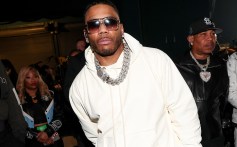
Trending on Billboard
Nelly is demanding that a lawyer for one of his former St. Lunatics bandmates repay more than $78,000 he spent in legal bills to defeat her “frivolous” lawsuit over the rights to his debut album Country Grammar.
The case, filed by ex-bandmate Ali, was dropped in April after Nelly argued it was obviously filed years after the statute of limitations had expired. Last month, a federal judge ruled that the case was so bad that Ali’s lawyer must repay his legal bills as punishment for pursuing it too far.
In a court filing on Wednesday, Nelly’s attorneys handed Ali’s lawyer the tab: $78,007 in legal fees for three copyright litigators, covering 142 hours they say they spent working on the case after it was clear it should have been dropped.
Related
“These rates are reasonable because they reflect the market rate for similar services to our quality of work in the New York City area,” Nelly’s attorney Kenneth Freundlich writes in the filing.
Ali’s attorney, Precious Felder Gates, will have a chance to argue for a lower fine before the judge settles on a final number. In a statement to Billboard on Thursday, she said she still believes the sanction itself was “unwarranted,” saying she’d “acted with the honest conviction that our client’s claims merited judicial consideration.”
Wednesday’s filing highlights the risk of filing questionable lawsuits against well-heeled defendants – and a potential weapon for top musicians who have complained about a rise in such cases. Ed Sheeran, Cardi B, Jay-Z and many other stars have warned that such lawsuits are often aimed at extracting quick settlements by exploiting the hassle and expense of litigation.
The case against Nelly was filed last year by members of St. Lunatics, a hip-hop group also composed of St. Louis high school friends Nelly, Ali (Ali Jones), Murphy Lee (Tohri Harper), Kyjuan (Robert Kyjuan) and City Spud (Lavell Webb). It centered on Country Grammar, the star’s debut solo album that spent five weeks atop the Billboard 200 and helped launch a career that reached superstar heights with his 2002 chart-topping singles “Hot in Herre” and “Dilemma.”
Related
The lawsuit alleged that Nelly had cut his former crew members out of the credits and royalty payments for the hit album. It claimed the star had repeatedly “manipulated” them into falsely thinking they’d be paid for their work.
But three of the St. Lunatics quickly dropped out, saying they had never actually wanted to sue Nelly and hadn’t given authorization to the lawyers who filed the case. Though Ali initially moved ahead alone, he dropped the case entirely in April. That move came as Nelly’s lawyers were seeking to dismiss the decades-delayed case under the Copyright Act’s three-year statute of limitations.
Though the case was over, Nelly’s attorneys refused to let Ali and his lawyers walk away. They asked for sanctions — meaning legal penalties — over a “vexatious” lawsuit that “should never have been brought.”
In the American legal system, each side usually pays its own legal bills, even including defendants who win a lawsuit that they feel they shouldn’t have faced. Only in rare cases, including as punishment for misconduct, do judges order the loser to repay the winner’s fees.
Last month, U.S. Magistrate Judge Robert W. Lehrburger said the case against Nelly was that kind of rare situation. He said it should have been “patently obvious” to Felder Gates that the case was doomed by last November, but that she had instead “doubled down.”
Related
Felder, the judge said, should face punishment for “vexatiously protracting the proceedings in bad faith by her attempt to obfuscate the facts she knew barred Jones’s claims and her subsequent refusal to withdraw the amended complaint in the face of overwhelming arguments that the claims could not possibly succeed.”
At the time, Freundlich said he hoped the ruling “sends a message to lawyers that there will be consequences for dragging a defendant into an action that is frivolous on its face.”
Wednesday’s filing explained the amount that Nelly’s lawyers say Felder Gates should pay under that order. Freundlich, a veteran music industry litigator, says he spent 19 hours at his rate of $725 per hour; a senior counsel at his firm, Jonah A. Grossbardt put in 88 hours at $575 per hour; and an associate, Hugh H. Rosenberg, worked 35 hours at $375 per hour.
Such rates are typical for attorneys at those levels in major law firms in New York and Los Angeles. Many lawyers at bigger firms charge even more, and complicated cases can cost millions to litigate. But the judge is not required to grant the entire request and could very well settle on a lower number.
Felder Gates will have a chance to file a motion next week seeking a lower fine, but the judge’s order means that she will eventually have to pay Nelly some amount of fees. In her statement to Billboard, she continued to defend her firm’s conduct in the case.
“Our firm pursued a legitimate claim in good faith to protect rights expressly afforded to our client,” she said. “Based on the information available and the applicable law, we held a reasonable and well-supported belief that viable arguments existed to [extend] the statute of limitations, and we accordingly advanced those defenses.”
Trending on Billboard
Even before its release to streaming services, “I Run,” a dance/EDM track by the artist HAVEN., was a viral sensation online, amassing millions of plays on TikTok after it was teased on Oct. 10. “I love this song so much,” said one TikTok commenter. “DROP THIS RIGHT NOW PLEASEEEE,” commented another.
Related
For HAVEN., a new artist project from British producers Harrison Walker and Jacob Donaghue, who also makes music under the name Waypoint, it was the kind of debut that could change the trajectory of their lives. But now, a swirl of legal complaints and takedown notices have engulfed the song, resulting in it being removed and reuploaded to streaming services multiple times — and stopping its momentum just as it was poised to reach the Billboard charts.
The frenzy of activity around “I Run” prompted multiple A&Rs at major and independent music companies to look into signing the track and the people that created it as it awaited official release. It also caught the attention of the popular UK R&B singer Jorja Smith. The uncredited female vocalist on “I Run” sounded eerily similar to Smith, prompting the singer to to post a video of herself on TikTok using it. She asked in the caption: “who actually is this?” and noted in a reply to a comment “it’s not meeeee” when fans asked if she sang on the track or if it was AI. (The video has since been deleted). Around that time, HAVEN. jumped in, adding #jorjasmith to a now-deleted social post about the song, according to a member of their team. “It was more so just embracing that it does sound like her,” a spokesperson for HAVEN. said. “It became an organic trend.”
That’s when questions started circulating about the origins of HAVEN.’s viral track — and whether or not it was an unauthorized AI deepfake of Smith’s voice. Ultimately, the song was released in late October by Isekai Records, Broke Records and AAO Records, and it continued to amass major listenership — so much so that it quickly reached #11 on the U.S. Spotify chart and #25 on Spotify globally. Meanwhile videos using the song kept going viral on social media, including one in which the rapper Offset apparently played the song during a Boiler Room DJ set, with the video overlaid with text that said, “Unreleased Jorja Smith.” (The song was not actually used during Offset’s recent Boiler Room set.)
Just as the song was taking off, it was taken down from streaming services. The Orchard — to whom Smith is signed — as well as the Recording Industry Association of America (RIAA) and International Federation of the Phonograph Industry (IFPI), issued dozens of takedown notices for “I Run” upon its official release, according to screenshots of the notices, alleging various issues with the song, including that the song “misrepresents” another artist and that it constitutes copyright infringement.
Related
As a result of the dispute, the song has also been withheld from the Billboard charts, including the Billboard Hot 100, on which some chart prognosticators had predicted it would debut this week. Billboard reserves the right to withhold or remove titles from appearing on the charts that are known to be involved in active legal disputes related to copyright infringement that may extend to the deletion of such content on digital service providers.
Broke Records tells Billboard that it filed dozens of counter-notices, asserting HAVEN.’s ownership of the song and noting that no lawsuit has been filed against them to date in association with the song. (The Orchard declined to comment.)
Donaghue and Walker maintain that they wrote and produced the song in ProTools, sharing screenshots and videos of the ProTools session files and stems with Billboard. They admit, however, that “AI-assisted vocal processing” was used to “transform solely [their] voice” in the song. Specifically, they say they used AI music generator Suno to turn Walker’s voice into that of a woman’s — without referencing Smith. According to Suno prompts shared with Billboard, the producers wrote into the model a prompt that included, among other requests, “soulful vocal samples” to get the voice they ultimately used on the song.
“It’s been such an honor to see the love and support for ‘I Run’ these past few weeks,” HAVEN. said in a statement to Billboard. “What started as something fun and experimental between two producers and music-lovers ended up taking the internet by storm. I’m aware that AI has become part of that storm. It shouldn’t be any secret that I used AI-assisted vocal processing to transform solely my voice for ‘I Run.’ As a songwriter and producer I enjoy using new tools, techniques and staying on the cutting edge of what’s happening. To set the record straight, the artists behind HAVEN. are real and human, and all we want to do is make great music for other humans.”
Related
Suno does not allow users to request specific artist or song names. But the company is currently in the midst of a blockbuster lawsuit with the three major music companies — Sony, Universal and Warner — over allegations of widespread copyright infringement of the majors’ sound recordings during the AI training process. Given Smith is signed to The Orchard, a Sony Music-owned distributor, it is possible her sound recordings were used in Suno’s training. According to the lawsuit and to AI music expert Ed Newton-Rex in an article for Music Business Worldwide, users can find savvy or accidental ways to prompt Suno into providing results that seem to contain recognizable pieces of intellectual property from artists like ABBA, James Brown, Michael Buble and more.
The takedowns list a variety of reasons for the request for removal, according to emails obtained by Billboard, including one from Spotify that says, “We have received a complaint that your content infringes the sound recording rights of a third party. While this claim is under investigation, the content has been removed.” Another from Spotify says the content “violates exclusive rights.” A third reads, “Spotify may remove content that misrepresents a track as originating from or featuring an artist or that uses an artist’s name in a misleading way.” One from TikTok also lists the reason why the track is muted as “it contains unauthorized copyrighted music.”
“Sound recording copyrights are not going to protect her voice if the voice sounded like her. There would have to be a sample of her sound recordings,” says Theresa Weisenberger, lawyer and co-lead at BakerHostetler’s AI practice, adding that voices are only protected by publicity rights — the legal right that varies state-to-state in the U.S. which protects one’s name, image and likeness from exploitation.
Historically, these rights have been mostly limited to commercial contexts, like misleading endorsements. The singer Bette Midler once famously sued the Ford Motor Co. over ads featuring a Midler impersonator who was hired by the company. Amid the boom in AI and deepfakes, however, lawmakers in Tennessee passed a new law, called the ELVIS Act, to dramatically expand the right to stop voice cloning in any context. And federally, lawmakers are currently considering a similar law, the NO FAKES Act, that would do the same thing nationally.
“I think this ought to be a wake up call for people to look at the status of the NO FAKES Act and to deal with how long it will take to get that moving and into a national uniform law,” adds Kenneth Anderson, an attorney at Rimon Law who recently advised his client, Ben Folds, though a deepfake situation. “We have a problem that is rapidly overtaking the music industry. It’s rampant and it’s increasing.”
Related
To fight the takedowns, HAVEN.’s labels started reuploading the song over and over, leading to a seemingly endless game of whack-a-mole for both sides. The impact on “I Run” became even more pronounced when the song did not appear on The Official Charts in the U.K. or the Billboard charts.
“Once that counter notice is filed and then a lawsuit is not filed, a platform is free to put the song back up if they want to,” explains Weisenberger. “But the fact that platforms aren’t doing that might speak to the PR issue this song causes.”
For Broke, an indie record label founded in 2023, “I Run” was gearing up to be their (and HAVEN.’s) biggest hit yet, and its founders tell Billboard they feel the song is being discriminated against by bigger industry players. “HAVEN., an independent producer-songwriter who created a global breakout hit on his own, is the one being fully de-platformed through a sophisticated campaign by a major label,” the label said in a statement to Billboard. “It is difficult to imagine this recording, if released by a major label, being treated in the same way as HAVEN.”
The song has become a lightning rod for conversations around generative AI use in the creation of popular music. To date, some music streaming services still do not have AI-specific policies in place, and those that do, like Deezer and SoundCloud, tend to only penalize fully AI-generated works, not something like “I Run,” which contains significant human input. As Billboard reported in 2023, however, an increasing number of platforms have broadened the ability of rightholders to issue takedowns when publicity rights — the right to one’s name image likeness and voice — are violated, due to the rise of AI-generated deepfakes. This is done on a voluntary basis and is not required by law.
Related
Spotify added to these publicity rights protections just last month when it announced that it was strengthening its policies against negative uses of AI. This included increased protections around impersonation, and according to a source close to the situation, the platform’s impersonation rules did come into play with the takedowns for HAVEN.’s track specifically. The source adds that Spotify tends to side with the party that feels they have been deepfaked. (Spotify declined to comment.)
Now, HAVEN. is gearing up to release a re-recording of the song, featuring the vocals of a singer named Kaitlin Aragon. She was discovered by the team after posting a TikTok video, covering “I Run” which sounds fairly similar to the original. The hope is, for HAVEN.’s team, that they can recapture the same buzz as they achieved with the last version of the song and restart HAVEN.’s career — but this time, with human vocals.
Trending on Billboard Warner Music Group reported a 23% decline in annual profit for the fiscal year ending Sept. 30 as the termination of BMG’s distribution agreement resulted in lower revenue, though higher publishing and recorded music revenues bolstered annual revenues. WMG’s net income for the 12 months ending Sept. 30 fell to $370 million […]
Trending on Billboard AEG Presents UK has announced new details about British Airways ARC, an upcoming 3,800-capacity live music venue and event space above the west exhibition hall at the Olympia convention space in London. Set to open in 2026, British Airways ARC is part of a $1.7 billion renovation of Olympia — a 138-year-old […]
Trending on Billboard
Warner Music Group CEO Robert Kyncl has detailed the company’s approach to generative AI in a new blog post published Wednesday (Nov. 19). The missive arrived just hours after WMG announceda settlement and licensing deal with Udio, effectively ending its part in a blockbuster copyright infringement lawsuit against the AI music company, which it brought alongside the other two majors.
Related
In Kyncl’s address, he stressed that while it’s “early days” for AI, “this is the moment to shape the business models, set the guardrails and pioneer the future for the benefit of artists and songwriters.” The CEO also revealed his thought process when going into meetings with AI companies, saying that his three non-negotiables include “partners who commit to licensed models”; economic terms that benefit and “reflect the value of music”; and giving the company’s signees a choice to “opt-in” to any use of their names, images, likenesses or voices in new AI-generated songs.
Kyncl also stated his belief that AI tools will further democratize music creation, adding that to stand out “in a sea of AI-generated content, real artistry identity and vision” is needed. He additionally stressed that the music industry should focus on engaging fans and getting them to lean in, saying, “the more interactivity users have with the music they love, the more value is created.”
Read the full blog post below.
AI is still in its early days. Investment is surging, talent is pouring in, and a crop of new, ambitious startups are working with music again for the first time in more than a decade. This is the moment to shape the business models, set the guardrails, and pioneer the future for the benefit of our artists and songwriters.
We’re approaching this new era with one priority above all else: protecting and empowering the artists and songwriters who are our reason for being. Every decision we make, every partnership we forge, every principle we establish is designed to ensure that they benefit from AI’s possibilities.
Every AI deal we make is guided by three non-negotiable principles:
1. We will only make agreements with partners who commit to licensed models;2. The economic terms must properly reflect the value of music;3. And, most importantly, artists and songwriters will have a choice to opt-in to any use of their name, image, likeness, or voice in new AI-generated songs.
WHY THIS MOMENT MATTERS
Over the last 25 years, we’ve experienced the democratization of music distribution. Many predicted it would lead to the demise of our industry, but the skeptics were proven wrong.
The barriers to entry have fallen, the world has gotten smaller, and artists are global from day one. Fans love having unlimited personalized access, streaming is driving unprecedented growth, and music is more valuable than ever.
Now, we are entering the next phase of innovation. The democratization of music creation.
We believe Generative AI will lead to a new explosion in creative and commercial opportunities, and that authentic talent will be even more in demand for two reasons
In a sea of AI-generated content, real artistry, identity, and vision will define stronger artistic brands.
The ability for fans to utilize AI will unlock even greater value. As history shows, the more interactivity users have with the music they love, the more value is created.
OUR APPROACH
Our approach is clear: legislate, litigate, license. We lobby for legislation that sets clear guidelines. We deploy litigation to halt bad actors. And we use licensing as the most powerful way to shape the future. Licensing is how we can safeguard our artists and songwriters, while collaborating with tech partners, to propel new fan experiences that drive additional revenue.
The partnerships we forge will offer a variety of specific use cases. Each of them adheres to our principles, winning important protections for artists and songwriters, while ensuring that they share in every dollar that’s earned. And as the services grow their revenue, so will the pay outs.
This space is moving lightning fast. Past lessons teach us that delaying only lets others define our future. The music business learned that during the file-sharing era. And the film & TV industries are still regretting not embracing streaming sooner. So for artists and songwriters to win, the music industry needs to be a leading force in the formative stages of AI, not a passive participant. We will steer the course in this new era to deliver greater value for our artists, songwriters, and their music.
This is only the beginning.
Robert Kyncl
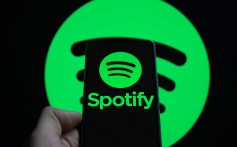
Trending on Billboard
Spotify has acquired the song sample platform WhoSampled, the companies revealed on Wednesday (Nov. 19).
According to a blog post by Spotify, WhoSampled will power SongDNA, an upcoming feature on the streaming platform that will showcase “connections between songs,” including samples, collaborators and covers. In a LinkedIn post, WhoSampled founder Nadav Poraz said he would stay on and that the platform would “continue to operate as a standalone platform and brand” following the acquisition. A blog post by WhoSampled added that the platform, which is driven by user contributions, would improve in several ways, noting that its iOS app would now be free to download and that in-app subscriptions would become free for all users; in addition, the site will become ad-free, and moderation for submissions will be faster.
Related
News of the purchase was part of a larger announcement in which Spotify revealed it would be expanding its song credits feature to encompass every single contributor to tracks on the platform; song credits previously only included topline performers, songwriters and producers. Spotify notes that the expanded song credits, which come directly from labels and distributors, are available starting now on the Spotify mobile app and will be rolled out to its desktop platform in the coming months.
Also announced by Spotify on Wednesday was “About the song,” another upcoming feature that will take the form of “swipeable cards” featuring factoids about songs. The information, which will be available in the platform’s “Now Playing” view, will be “sourced from third parties to highlight interesting details and behind-the-scenes moments,” according to Spotify’s blog post.
Spotify says the SongDNA and About the song features will be introduced via its Spotify for Artists platform early next year — giving creators an opportunity to offer feedback and “redeliver” credits if inaccuracies are found — before rolling out to users.
Related
“Every song is a collaboration, and every contributor should be seen,” said Jacqueline Ankner, head of songwriter & publisher partnerships at Spotify, in a statement. “With expanded Song Credits, SongDNA, and About the song, we’re giving fans a deeper look at the people and creative threads behind the music they love and giving creators the recognition they deserve. It’s another step in Spotify’s work to champion the people, connections, and stories that bring every track to life.”
Artists can review their Spotify song credits here.
Trending on Billboard
Two more of Smokey Robinson’s former employees — a woman and a man — have come forward with claims that the 85-year-old Motown singer sexually assaulted them on the job.
Robinson was first accused of sexual misconduct in May, when four anonymous, female ex-housekeepers at his Los Angeles-area home brought a $50 million civil lawsuit alleging the singer forced them to have oral and vaginal sex dozens of times between 2007 and 2024. Robinson vehemently denied those claims and has countersued the housekeepers for defamation.
Related
Now, another anonymous female housekeeper and an unnamed male car mechanic want to join the lawsuit. A lawyer for the group, John Harris, argued in a motion to amend the lawsuit on Friday (Nov. 14) that all the claims involve “overlapping events under the same operative timeline.”
The fifth housekeeper, dubbed “Jane Doe 5,” claims Robinson groped her breasts, propositioned her for sex and forced her to scrub his back in the shower between 2007 and 2011. The mechanic, a man known as “John Doe 1,” says Robinson would masturbate while watching him work starting in 2013 and once tried to force him to touch Robinson’s penis.
In a statement shared with Billboard on Wednesday (Nov. 19), Harris said, “We commend these two courageous survivors for stepping forward and adding their voices to this case. We look forward to advocating for them vigorously as they pursue the justice they deserve.”
Robinson’s lawyer, Christopher Frost, responded in his own statement that the new claims are false and part of an “organized, avaricious campaign to extract money from an 85-year-old legend.”
“This group of people, who hide behind anonymity, and their attorneys seek global publicity while making the ugliest of false allegations,” added Frost. “Once the public can see the truth, their avaricious motives and fabricated claims will be revealed.”
The civil claims against Robinson are currently scheduled to go to trial in 2027. The Los Angeles County Sheriff’s Department also opened a criminal investigation after the housekeepers made a police report, though no charges have been filed to date.
Trending on Billboard Calvin Harris is moving his overseas talent bookings from WME to agent Brent Smith at Wasserman Music, who has long managed his U.S. bookings, sources tell Billboard. Smith formerly worked at WME and left the agency for Wasserman in late 2020. Related Representatives for Harris say the Scottish EDM artist, known for […]

 State Champ Radio
State Champ Radio 


